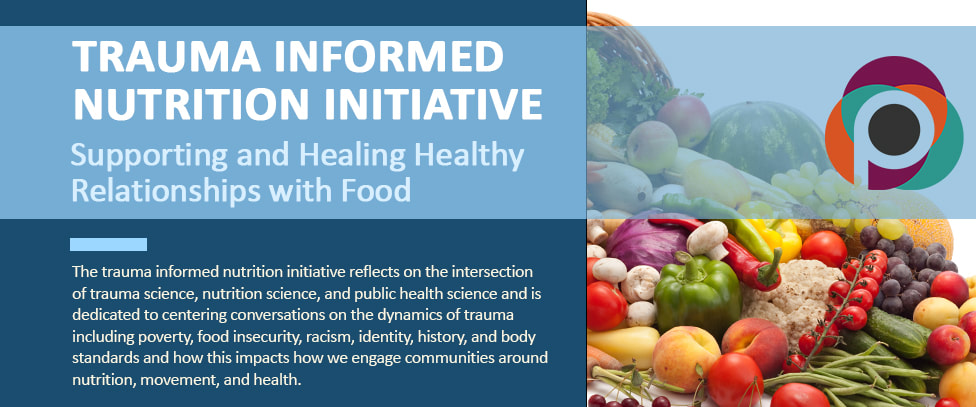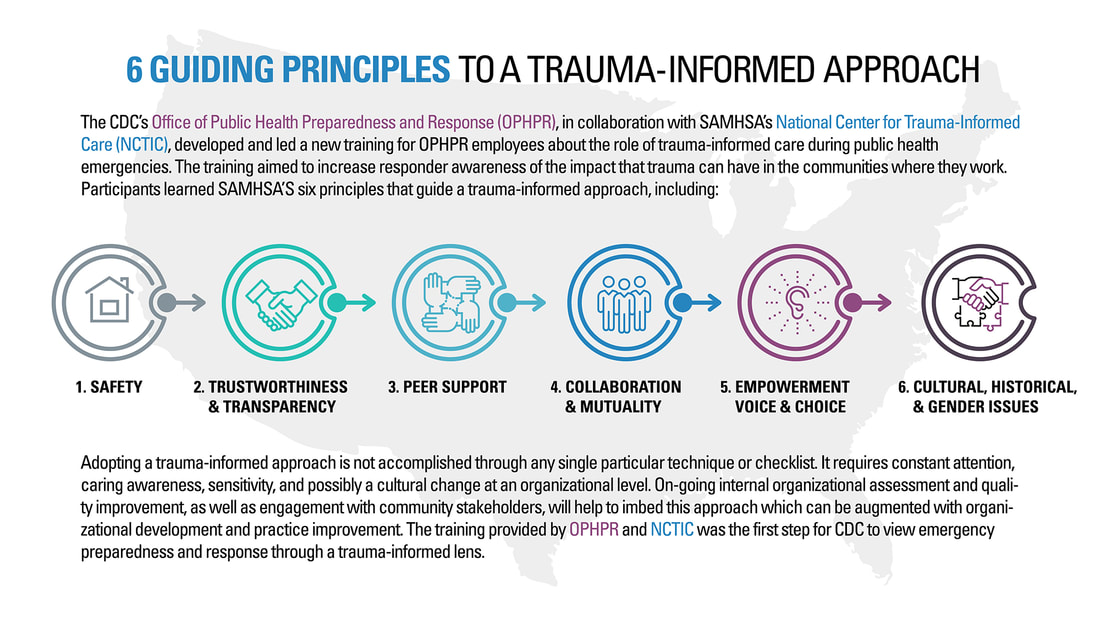Join us on this journey together.

The trauma-informed nutrition initiative led by Pinnacle Prevention reflects on the intersection of trauma science, nutrition science, and public health science and how this impacts how we engage communities around nutrition, movement, and health. This initiative is:
By participating in this systems change initiative practitioners have the opportunity to connect with one another to understand how experiencing hunger and trauma can impact eating behaviors and how to move the conversation from one that may invoke shame to recognizing the emotional dimensions of our collective work. Incorporating trauma-informed awareness, knowledge, and skills for application includes deep reflection, increased awareness, cultural humility, and discussion of what this means for application and action to guide us towards deeper systems change.
This work is not a traditional training or a magic formula for behavior change.
It is a long-term developmental approach to shift towards becoming a more responsive, trauma-informed system which results improves health outcomes and community wellbeing . This initiative is shaped around SAMHSA’s six (6) Guiding Principles to a Trauma-Informed Approach.
Contact us to request training, technical assistance, or support in implementing trauma informed nutrition care and systems change.
- Dedicated to centering conversations on the dynamics of trauma including poverty, food insecurity, racism, identity, history, and body standards and
- Designed to create a dedicated space to build more effective approaches to heal and support healthy relationships with food, particularly through public health nutrition assistance programs and social service programs that work with populations impacted by trauma.
By participating in this systems change initiative practitioners have the opportunity to connect with one another to understand how experiencing hunger and trauma can impact eating behaviors and how to move the conversation from one that may invoke shame to recognizing the emotional dimensions of our collective work. Incorporating trauma-informed awareness, knowledge, and skills for application includes deep reflection, increased awareness, cultural humility, and discussion of what this means for application and action to guide us towards deeper systems change.
This work is not a traditional training or a magic formula for behavior change.
It is a long-term developmental approach to shift towards becoming a more responsive, trauma-informed system which results improves health outcomes and community wellbeing . This initiative is shaped around SAMHSA’s six (6) Guiding Principles to a Trauma-Informed Approach.
Contact us to request training, technical assistance, or support in implementing trauma informed nutrition care and systems change.
Resources and Referrals
Child Trauma Counseling and Support
- Child Crisis Arizona: https://childcrisisaz.org/what-we-do/education-and-tools-for-families/counseling/
- Southwest Human Development: https://www.swhd.org/
- Talk Space Online Counseling: https://www.talkspace.com/
Pediatric Feeding Therapy and Services
- Feeding Matters: https://www.feedingmatters.org/families
- Food is Fun: http://www.foodisfuntherapy.com/
- Desert Valley Pediatric Therapy: https://www.dvpediatrictherapy.com/feeding-clinic
- Eat, Talk, Play Therapy: https://www.eattalkandplaytherapy.com/location--hours.html
- Southwest Human Development: https://www.swhd.org/programs/disabilities-services/feeding-program/
General Support for Children
- The National Child Traumatic Stress Network: https://www.nctsn.org/
- Birth to Five Hotline (First Things First): 1-877-705-KIDS (5437)
- Phoenix Children’s Hospital
- Arizona Early Intervention Program (AzEIP): (800) 237-3007 or email [email protected]
|
|



